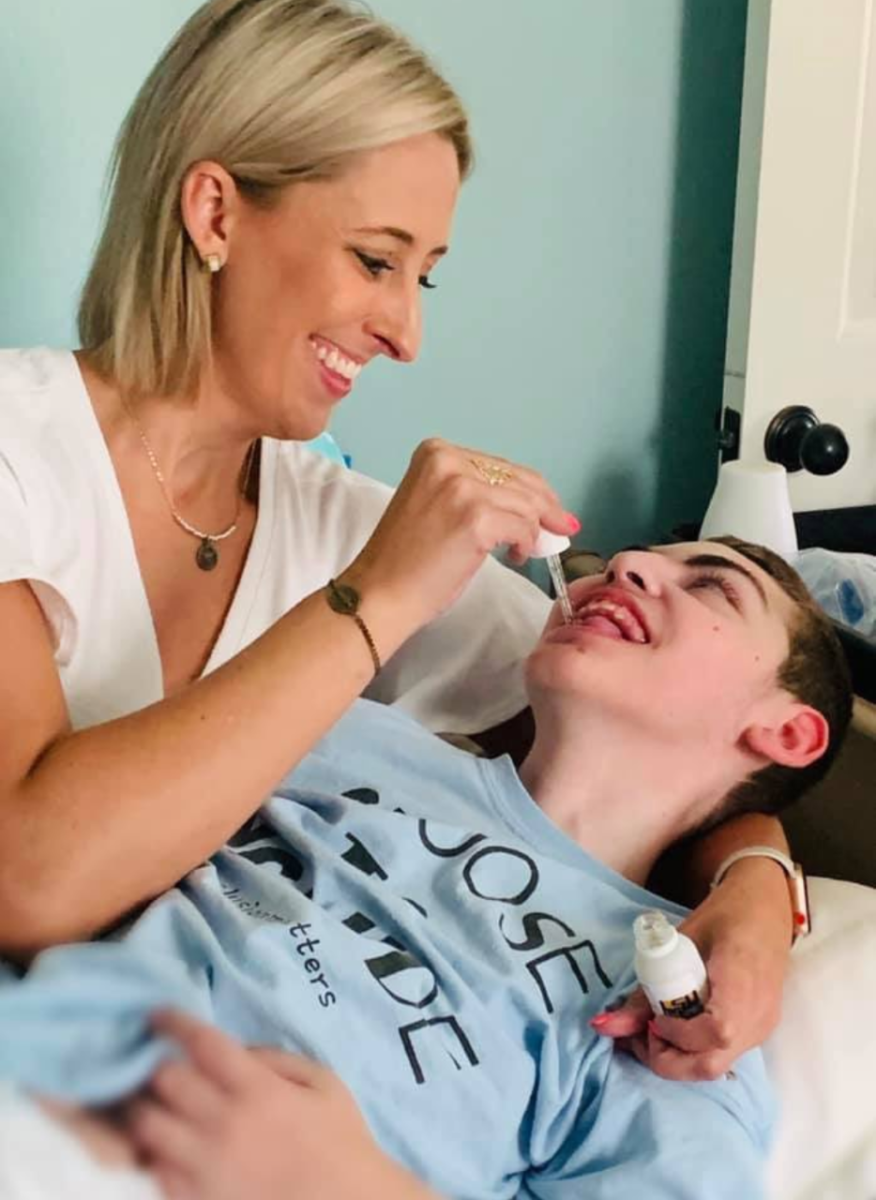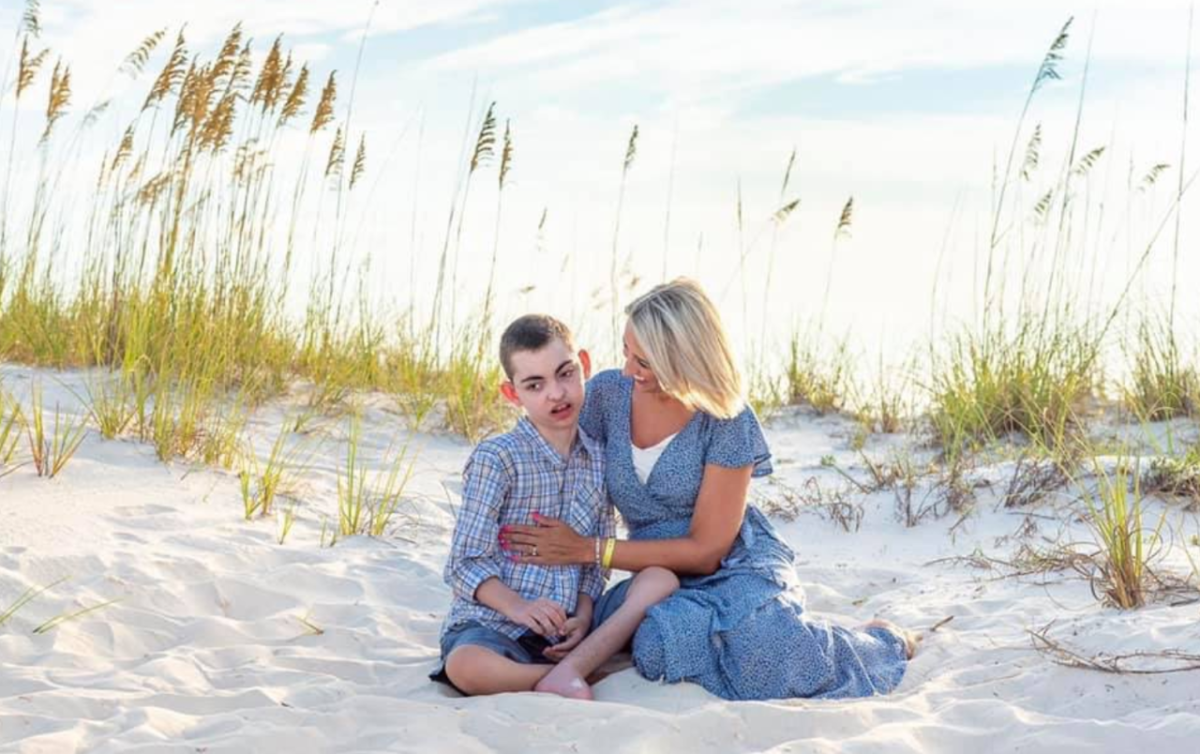Katie Corkern’s son, Connor, experienced seven types of seizures between 50 to 200 times a day for most of his life.
Connor has Schizencephaly and a seizure disorder. He was unable to function independently, and experienced damage to his brain, liver and other organs due to his array of anti-epileptic medications.
“His neurologist had come to a point where we were just at a loss,” Corkern said. “We tried so many different medications, we tried surgeries, we did diets, and nothing was really relieving him from the constant seizure activity in his brain.
“At that point, he was on seven different anti-epileptic seizure medications. The side effects were devastating, along with the constant seizure activity. At some point, the doctor said, ‘well, the last thing I would recommend is medical marijuana, but that’s not legal here in Louisiana.’”
And thus began Corkern’s journey, along with Sen. Fred Mills, R-Parks, and many other advocates to get medical marijuana legalized in 2016.
Medical marijuana is finally gaining momentum in Louisiana after a slew of delays and regulatory setbacks. But with a newly elected set of state representatives for the 2020 legislative session, the medical marijuana program may expand leading to greater accessibility statewide.
Current medical marijuana policies allow for two medical marijuana growth facilities: the GB sciences location at the LSU Agricultural Center and the Ilera Holistic Healthcare location at Southern University.
Patients are ‘recommended’ marijuana by licensed doctors rather than prescribed, to protect them from federal laws. Those who are recommended may receive their medication through a 30 mL tincture, a concentration dissolved in an alcohol solution for oral consumption.
Tinctures are available in three forms: high CBD, designed for patients with epilepsy, seizure disorders and Autism spectrum disorder; high THC, designed for patients with chronic pain, PTSD, glaucoma and related disorders; and a balanced formulation, designed for patients with multiple sclerosis and muscular dystrophy, according to GB Sciences president John Davis.
Medical marijuana was legalized in Louisiana in the 1970s, but legislation lacked regulations for distributions and prescriptions. It was not until Sen. Fred Mills, R-Parks, sponsored S.B. 271 in 2016 to regulate growing facilities and allow for the medical marijuana licensing of doctors and pharmacies that medical marijuana became viable in the state.
“A few people called me up that had just debilitating diseases that I felt… that the decision of legality of medical marijuana should be between the physician and the patient,” Mills said. “And that person should have that opportunity. You have prescription therapy and there should be an alternative.”
For patients like Connor Corkern, medical marijuana meant experiencing “75% less absent seizures,” according to his mother, along with the ability to now clap and express emotions.
Medical marijuana became available to the public two and a half years after the passage of S.B. 271. GB Sciences held a monopoly on a limited supply of medical marijuana for months following a testing period between the company and the Department of Agriculture.
Southern University’s facility experienced longer delays. The university’s original private partner, Advanced Biomedics, did little to begin production before the majority owner sold his stake in the fall of 2018. Ilera Holistic Healthcare became the sole partner in the venture and began production in August.
As of November 2019, 3,495 patients have received medical marijuana from 115 licensed physicians in the state. The average age of users is 52 years old, and the most common condition among patients is intractable pain. 13% percent of users are PTSD patients, while 26% of patients are recovering opiate users, Davis said at a medical conference in November.
“The opioid crisis becomes more in the forefront,” Mills said. “We’re seeing folks tell me, ‘I was on opioids and now I’m on medical marijuana. I’m not having the side effects and I’m more productive.’”
Health insurance does not cover medical marijuana, and 30 mL bottles cost $90 to $250—making the medicine inaccessible for lower socioeconomic groups.
It takes Connor Corkern 15 days to go through his 30 mL bottle. His family spends $200 per month on medical marijuana, not to mention the other medications they pay for him.
The Board of Pharmacy of Louisiana, which licenses and regulates the marijuana pharmacies that dispense marijuana products, weighed in on complaints it received regarding lack of access due to geographic restraints.
“We have heard from some patients that there are not enough physicians authorized to issue recommendations for medical marijuana,” Executive Director Malcolm Broussard said. “Others have told us about the limited number of pharmacies available to dispense the product as well as the retail cost of those products.”
There are only three pharmacies north of Covington in Alexandria, Monroe and Shreveport.
Residents of Jonesboro looking to obtain medical marijuana face a 45-mile drive northeast to the nearest pharmacy in West Monroe, totaling two hours there and back. DeRidder residents must travel three hours to drive to Alexandria’s medical marijuana pharmacy and back—totaling 140 miles for one bottle. Mills critiqued the intense level of testing and regulation on growing facilities on the production side.
“I think what we wanted to be was extra cautious,” Mills said. “Sometimes, as you know, perfection and being too cautious can take time.”
Some state residents hope medical marijuana returns to the debate floor in the next legislative session following an array of congressmen losing their seats.
Travis Johnson, D-Ferriday, who will be a freshman legislator in the spring, said he supports medical marijuana legislation, unlike his predecessor Rep. John Anders, D-Clayton, who voted against the original bill to legalize medical marijuana.
Johnson also hopes to expand legislation to allow farmers to grow hemp. Other legislators, like Barry Milligan, R-Shreveport, are keeping their cards close to their chest.
Milligan has stated that he is against recreational marijuana use but said he will make no statements regarding medical marijuana until he is sworn into office.
The likeliest expansion to come out of the next legislative session is increasing the number of qualifying conditions, Mills and Commissioner of Agriculture and Forestry Mike Strain said.
Louisiana will soon introduce the metered-dose inhaler. Medical marijuana producers are also working on topical ointments, gummies and oral strips, similar to Listerine mints, according to Jesse McCormick, the executive director of Louisiana Association for Therapeutic Alternatives.
“We will be supportive of whatever the legislature asks us to do,” Strain said.
Other advocates displeased with the program turn to the black market to obtain cannabis.
“It’s just absurd to think that anybody could or would pay $250 a month [for medical marijuana],” said former Supreme Court candidate and medical marijuana advocate Jeffrey Sanford. “Now, you can go spend $250 a month for your prescription. Other people choose to go on the black market and buy a quarter pound of marijuana for $500— and that’s for raw materials. If you think about it, if you get one of these recommendations from doctors, then when you go to court or apply for a job, they can still bypass a positive drug screening.”
Katie Corkern and her son Connor Corker, 13, on the beach during a family vacation.






